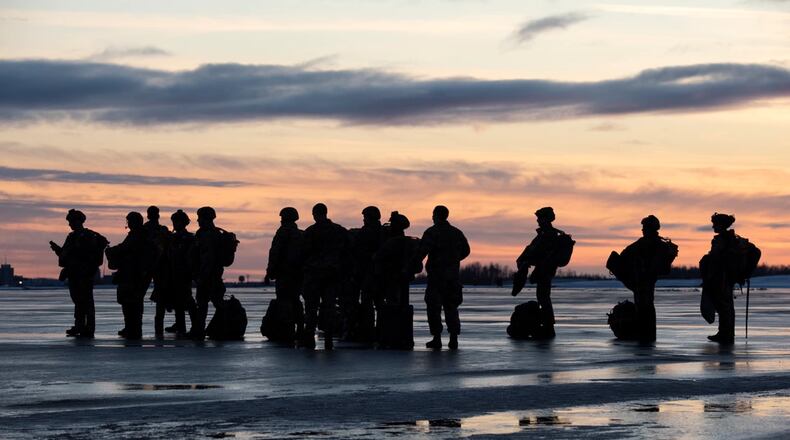In a 2023 Rand survey of the American public, only 4% of respondents reported being unaware of Navy SEALs and just 8% didn’t know about Army Special Forces, whose troops are known popularly as Green Berets. In contrast, 82% said they have limited to no familiarity with special operations forces in the Air Force.
“These results confirm Air Force beliefs that there is limited awareness of” its special operators, and the “lack of a clear and compelling brand is a key challenge to recruiting,” the report said.
Over the years, SEALs and Green Berets have garnered much attention through movies, books and other forms of self-promotion, Rand said.
But while a lack of awareness about such jobs poses an initial challenge for the service’s recruiters, the under-the-radar image of the Air Force special operator adds to the appeal for some recruits once they learn about the offerings of the service.
“What drew me in is just how quiet the (Combat Control Team) community was,” a trainee for the air-ground communications role told Rand. “I mean, the SEALs, the Green Berets, and everybody knows what those are, but I like a job where ... the outside world does not really know.”
Air Force recruiters need to find ways to get the word out about jobs like pararescue, special reconnaissance and tactical air control, Rand said. Developing “new narratives” that spark curiosity and motivate recruits to seek more information is therefore imperative, the report adds.
In interviews with those who joined Air Force special operations, researchers found that the decision often related to the unique nature of the mission, an ethos of “quiet professionalism” and a perception of better quality of life than what the Army and Navy can offer.
Air Force Special Warfare jobs like pararescue, whose practitioners are known as PJs, have a distinct advantage for drawing a contrast with other commando jobs because of the heavy focus on delivering medical care in dangerous places, the report said.
“Did I want to spend my time learning how to kill people and have that on my conscience or did I want to learn how to save lives and treat people? That just felt like it would sit a lot better with me,” one pararescue trainee told Rand.
The report made a correlation between the demanding nature of such jobs and the hurdle of finding people to fill them.
“Communities like Air Force Special Warfare face even greater difficulties because of the physical and mental challenges,” the report authors said.
In light of that, recruiters could target typical athlete hangouts and conduct physical workouts in public places, Rand said. Other recruiting tactics suggested in the report are connecting with high school athletic programs and placing business cards in free shaker bottles at gyms.
The Air Force’s reputation for a higher quality of life in general in comparison with the other services also factored into the decision-making process, those interviewed by Rand said, according to the report.
About the Author
